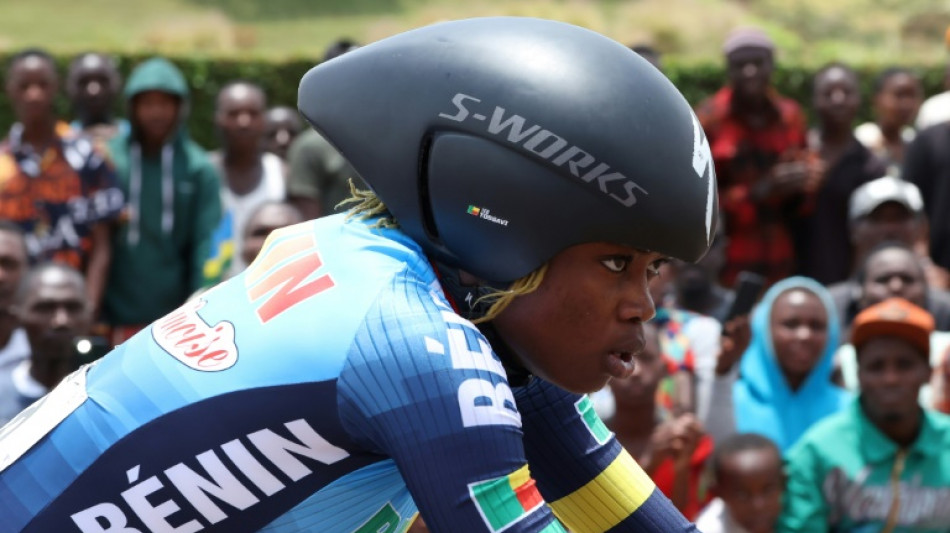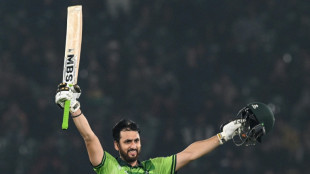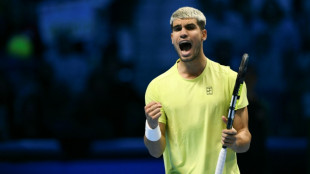

Cycling worlds bring pride to African riders despite disadvantages
Africa's first ever cycling world championships have been a dream come true for several amateur riders, some of whom have been praying just to be given an opportunity in a sport dominated by wealthy nations.
Setting off for her time-trial from a ramp in Kigali's BK Arena, to the backdrop of the rhythm of traditional Central African ingomas drums, Vanette Houssou achieved a long-held ambition.
"I was a bit nervous at the start, but most of all I was proud," said the 20-year-old from Benin.
"When I started cycling, in my prayers, I prayed to God to help me be here."
A record-breaking 36 African countries are represented in Rwanda, with a third of the more than 700 riders competing coming from the continent.
The junior and under-23 categories are particularly well stocked with African competitors.
Several of them, like Houssou, were part of the 'Africa 2025' project set up by cycling's governing body the UCI.
The youngster from Benin spent several months in Brittany, France, training for the championships and "dreams of competing in the Tour de France or the Giro d'Italia" one day.
But difficulties remain for potential professional riders from a continent where cycling is still mainly seen as a mode of transport rather than a sport, including in Rwanda where four-time Tour de France champion Tadej Pogacar was spotted training with a local resident on a giant, old bike.
"In Tunisia, there aren't many female cyclists, about 10 at most," says Tunisian Alma Abroud, who watched in awe as three-time men's time-trial world champion Remco Evenepoel rode past her during a training run.
"We're representing the continent here. It's an honour to have the championship here.
"It was beautiful to see, the perfection (of Evenepoel's technique). It makes me want to work even harder to maybe join a professional team one day."
- 'Different kind of cycling' -
However, the personal aspirations of the riders do not change the challenges that remain.
These world championships are a meeting of two different worlds -- the ultra-professional one of cycling's top stars and the sometimes makeshift one of Africa's amateur hopefuls.
The difference is particularly obvious in the equipment.
Malian rider Tiemoko Diallo competed in the Under-23 time-trial on a standard road bike, light-years away from the expensive, streamlined machine used by winner Jakob Soderqvist of Sweden.
"The difference is huge. It's a different kind of cycling, but we don't have the means to buy a time-trial bike. When we do, we'll be able to work hard," insisted Diallo.
"There's a lot of talent in Mali. All Malians want to ride, they really love it. Only, there is no funding and no training."
The Rwandan team is better equipped, driven by President Paul Kagame's desire to use the championships as a showcase for the country.
"We had preferential pricing on time-trial bikes and road racing bikes. I now have 32 new bikes," said Rwanda team coach David Louvet.
Home rider Shemu Nsengiyumva made the most of the opportunity, taking a remarkable 25th place in the men's time-trial, finishing ahead of several professionals.
The young Africans competing are hoping that their efforts at the championships can leave a lasting legacy, rather than being a one-off.
"In Benin, many girls think that cycling is really difficult and they don't want to do it, but every year participation continues to increase," said Under-23 rider Charlotte Metoevi of the sport back home.
"I want to show them that they can do it."
Some boundaries have already been broken by Biniam Girmay, the first black African to win a Grand Tour stage and a three-time stage winner on the 2024 Tour de France.
"The Europeans are still a little stronger than the Africans, but with training, we'll get there. Like Biniam, who rides with them," adds Houssou of the Eritrean star.
F.Kelly--CT



